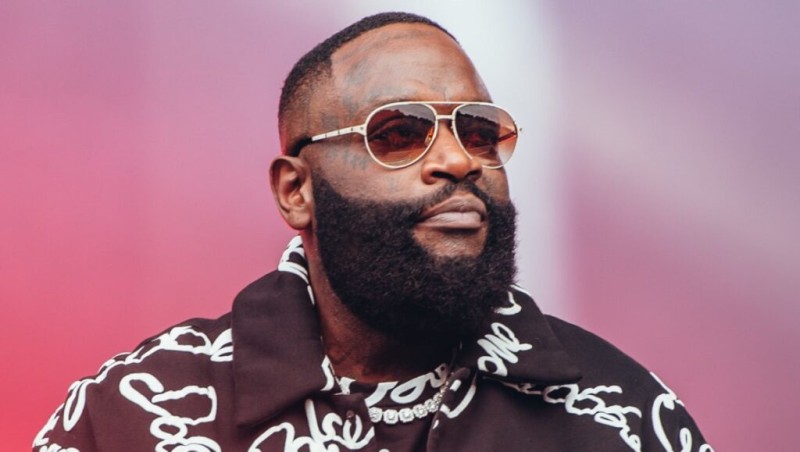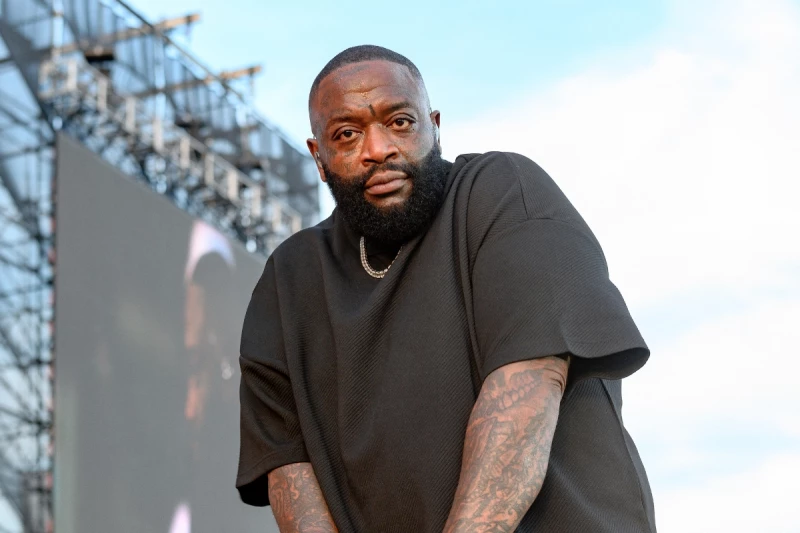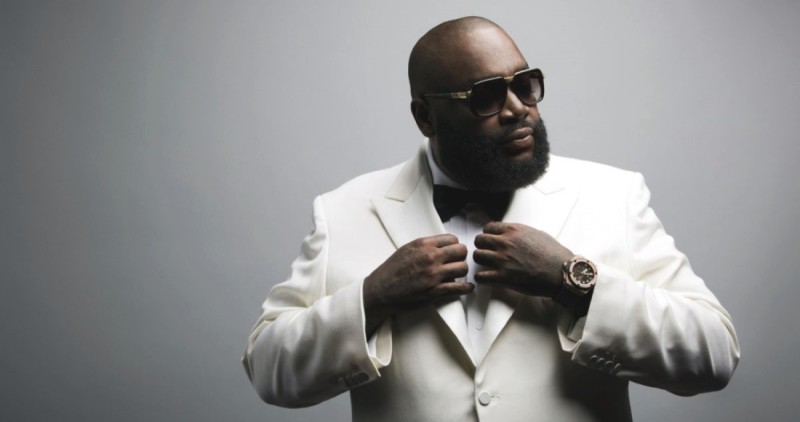Rick Ross, the renowned rapper and entrepreneur, has built an impressive financial empire worth approximately $150 million through his music career, record label, and diverse business ventures spanning real estate, restaurants, and more. His newest venture dips into digital payments, and gambling payments with Kryptonim reflect the same drive for speed and innovation that has defined Ross's rise as a modern business figure.
How Rick Ross Earned His First Dollars
Rick Ross's journey to wealth began long before his music career took off. Born William Leonard Roberts II in Clarksdale, Mississippi, Ross grew up in Carol City, Florida, where he developed his entrepreneurial mindset early on. Before becoming a hip-hop legend, Ross earned his first significant income working as a correctional officer at the South Florida Reception Center from December 1995 until June 1997.
Despite later attempting to deny this early career choice when it was revealed in 2008, Ross eventually acknowledged his past employment. During this period, he earned a modest salary of approximately $25,000 annually – a far cry from his future wealth but an important stepping stone in his financial journey.
While working in law enforcement, Ross was already nurturing his musical ambitions, writing rhymes and developing connections in the local Miami music scene. These early years taught him discipline and provided a stable income while he pursued his true passion.

Rick Ross's Career Development and Early Earnings
Ross's music career began gaining traction in the mid-2000s after signing with Slip-n-Slide Records. His breakthrough came in 2006 with the release of his debut single "Hustlin'" which sparked a bidding war among major labels. Def Jam Records, headed by Jay-Z at the time, eventually won, signing Ross to a multimillion-dollar deal.
His debut album "Port of Miami" released in August 2006, topped the Billboard 200 chart and was certified platinum. During this initial phase of his career, industry experts estimate Ross was earning between $2-5 million annually from record sales, performances, and merchandise.
By 2009, with the release of his third album "Deeper Than Rap" and the founding of his Maybach Music Group label, Ross's annual income had likely increased to the $8-10 million range. His business acumen was already evident as he began diversifying his income streams beyond just music.
According to industry reports, between 2010-2015, Ross consistently ranked among hip-hop's highest earners, with annual incomes reaching $15-20 million during peak years. This period marked his transformation from simply a successful rapper to a genuine business mogul.
Ross's life story has inspired countless fans. If you're a devoted fan, you might want to design Neon Signs to express your love for him. You can incorporate some of his iconic lyrics, personal logos, or classic elements from his album covers.
These can be practical decorations for your room, while also serving as a memento, further strengthening a fan's sense of belonging. Custom neon signs are convenient and easy to create, allowing you to quickly create a unique neon sign just for you.
When Rick Ross Reached His Financial Peak
Rick Ross reached new financial heights between 2016-2020, when his diverse business portfolio began generating substantial returns alongside his music career. During this period, Ross expanded aggressively into various sectors:
- His Maybach Music Group label became home to successful artists like Meek Mill and Wale
- His Wingstop franchise ownership expanded to over 25 locations nationwide
- His Belaire champagne brand gained significant market share in the luxury spirits segment
- His real estate investments grew substantially, including his 109-room Georgia mansion
In 2017, Forbes estimated that Ross earned approximately $25 million, placing him among the top earners in hip-hop. His 2019 memoir "Hurricanes" became a New York Times bestseller, adding another revenue stream. By 2020, despite the pandemic's impact on touring revenue, Ross's diversified business interests helped maintain his wealth while many artists struggled financially.

The acquisition of additional Wingstop franchises proved particularly lucrative, with reports suggesting these restaurants alone generate several million in annual profit. His shrewd business decisions during this period cemented his reputation as one of hip-hop's most financially savvy figures.
Rick Ross's Current Net Worth and Income Streams
As of 2025, Rick Ross (RRI) maintains an estimated net worth of approximately $150 million. His current income derives from multiple sources, with music representing only a portion of his annual earnings.
Ross continues to earn substantially from his extensive real estate holdings. His flagship property, a 109-room mansion in Fayetteville, Georgia (formerly owned by boxer Evander Holyfield), was purchased for $5.8 million in 2014 and has significantly appreciated in value. The estate, which spans 235 acres, has been featured in several films and TV shows, creating additional income through location rentals.
His Wingstop empire now encompasses over 30 franchise locations nationwide, generating an estimated $7-10 million in annual revenue. Additionally, his partnership with Belaire champagne and Bumbu rum continues to thrive in the premium spirits market.
Music remains a steady income source through royalties, streaming revenues, and occasional performances. Industry analysts estimate Ross commands $500,000-$750,000 for major performances and special appearances.
Most recently, Ross has expanded into the cannabis industry with partnerships in California and Michigan, positioning himself for growth in this emerging market. He's also launched a line of grooming products called Rich Hair Care, demonstrating his continued ability to identify profitable business opportunities.
In a recent interview with Business Insider, Ross stated: "Building wealth isn't just about making money—it's about making your money work for you. I've always approached business with the same mentality I brought to music: authenticity and strategic thinking."
Financial experts predict Ross's net worth could exceed $200 million by 2027 if his current business ventures continue their growth trajectory, particularly his expanding real estate portfolio, which now includes commercial properties in Atlanta, Miami, and Memphis.

How Rick Ross Maintains and Grows His Fortune
Rick Ross has developed a reputation for financial discipline despite his lavish public persona. In recent years, he's become increasingly vocal about financial literacy and wealth building, particularly within the African American community.
Ross applies several key strategies to preserve and grow his wealth:
- Diversification: By spreading investments across music, restaurants, beverages, real estate, and other ventures, Ross protects himself from downturns in any single industry.
- Brand synergy: Ross cleverly cross-promotes his various businesses, using his music videos to showcase his champagne brand and mentioning his Wingstop franchises in songs.
- Strategic partnerships: Rather than starting businesses from scratch, Ross often partners with established companies, leveraging their infrastructure while contributing his name and marketing power.
- Real estate focus: Ross has repeatedly emphasized real estate as his preferred investment vehicle, telling Forbes in a 2022 interview, "Land appreciates. The concrete and the steel appreciate. I'm not playing games with my investment."
Despite health challenges, including seizures that led to hospitalization in 2018, Ross has maintained an active role in his business empire. He regularly shares business advice on social media and in interviews, positioning himself not just as an entertainer but as a business mentor.
In his 2023 financial advice book "The Perfect Time to Boss Up," Ross wrote: "Every dollar you earn has potential. The question is whether you'll unlock that potential or waste it." This philosophy continues to guide his financial decisions as he builds what he often refers to as "generational wealth" for his family.
With his diverse business portfolio, strategic investments, and continued relevance in the music industry, Rick Ross (RRI) stands as one of hip-hop's most financially successful figures, with a wealth-building blueprint that extends far beyond his musical talents.
 Saad Ullah
Saad Ullah

 Saad Ullah
Saad Ullah


